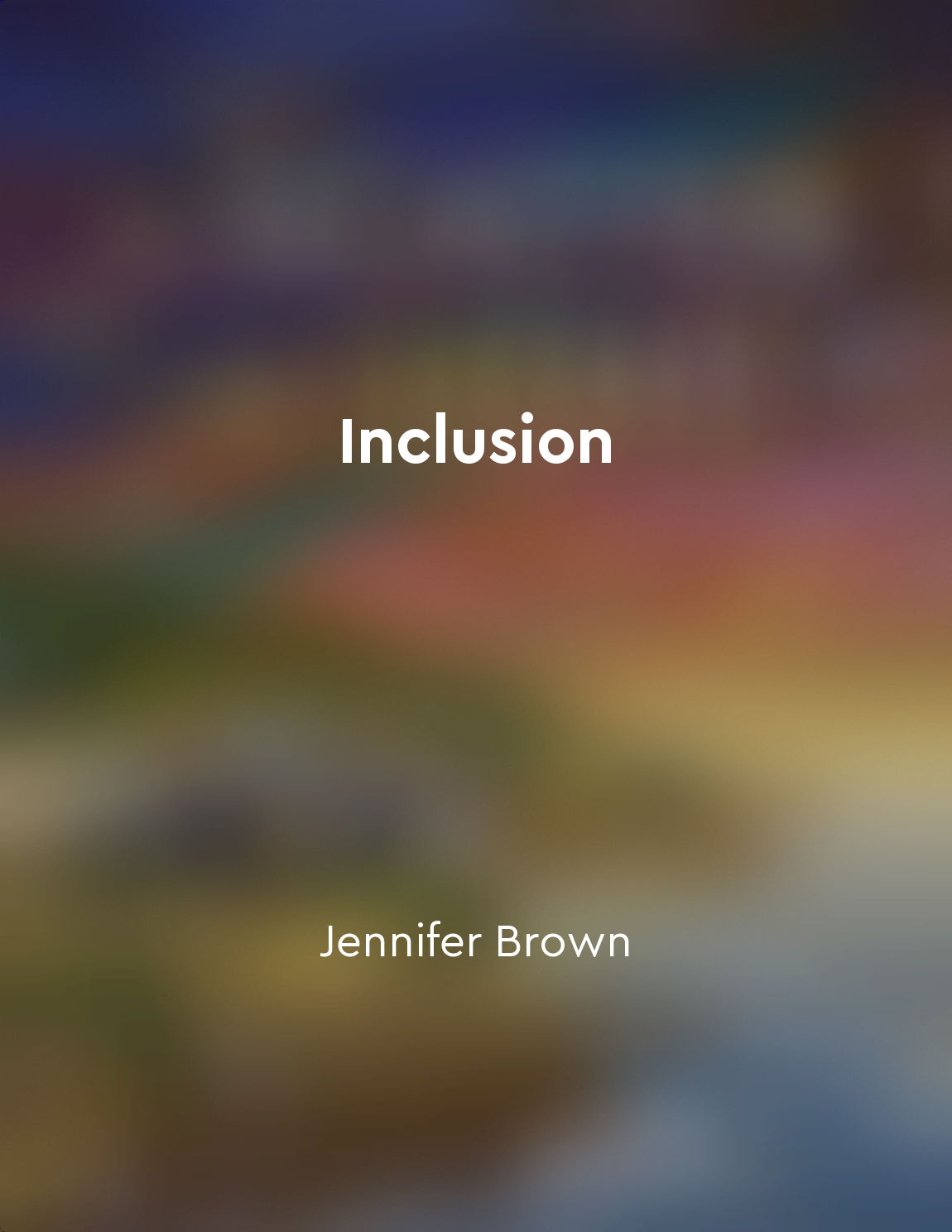Bridging moral divides requires understanding different perspectives from "summary" of The Righteous Mind by Jonathan Haidt
To bridge moral divides, we must first understand that people have different moral foundations. Just as there are different taste buds on the tongue, there are different moral taste buds in the mind. These moral taste buds are shaped by evolution, culture, and personal experiences. When we encounter someone with a different moral perspective, our initial reaction is often to judge them as wrong. But this judgment is based on our own moral taste buds, not theirs. We must resist the urge to simply dismiss their views as misguided or irrational. Instead, we must strive to see the world through their eyes. We must try to understand the moral foundations that underpin their beliefs and actions. This requires empathy and open-mindedness. It requires us to step outside of our own moral matrix and enter into theirs. By understanding where someone is coming from, we can begin to find common ground. We can see that their moral concerns are just as valid to them as ours are to us. This recognition of shared humanity is essential for bridging moral divides. It is important to remember that understanding someone's perspective does not mean condoning or agreeing with it. It simply means acknowledging the validity of their moral foundations. This acknowledgment opens the door to respectful dialogue and constructive engagement. In the end, bridging moral divides is not about changing someone's mind. It is about building bridges of understanding and empathy. It is about recognizing the complexity of human morality and the diversity of moral perspectives. Only through this recognition can we hope to move beyond moral conflict and towards moral harmony.Similar Posts
The hive switch can unite individuals into a group
The hive switch is a powerful concept that can transform individuals into a cohesive group, capable of working together towards...

Ensure equitable opportunities
To create a truly inclusive environment, it is critical to ensure equitable opportunities for all individuals. This means recog...
Religion is not the primary driver of violence, but rather a tool used by those in power
The idea that religion is the main cause of violence is a common belief held by many people. However, William T Cavanaugh chall...

The pursuit of excellence requires embracing one's unique qualities and talents
To pursue excellence is not merely to imitate others or conform to societal norms. It requires a deep understanding and appreci...
Curiosity fuels intelligence
Curiosity is the driving force behind expanding our knowledge and understanding of the world around us. It is the spark that ig...
Instinct is the foundation of human behavior
Kenneth R. Miller argues that the concept of instinct as the foundation of human behavior is a fundamental aspect of our nature...
Seek common ground to bridge divides
To effectively navigate through difficult conversations and disputes, it is crucial to find common ground with the other party....
Behaving in accordance with duty is the essence of moral worth
To act morally, one must act out of a sense of duty rather than mere inclination or desire. This duty stems from rational princ...

Gratitude and humility are virtues that bring joy and peace
Gratitude is a wonderful quality to have, my dear. When we are grateful for the things we have, big or small, we find joy in ou...

Emotional regulation can prevent hasty decisions
When faced with a decision, our emotions can often cloud our judgment and lead us to make hasty choices. This is because our em...
